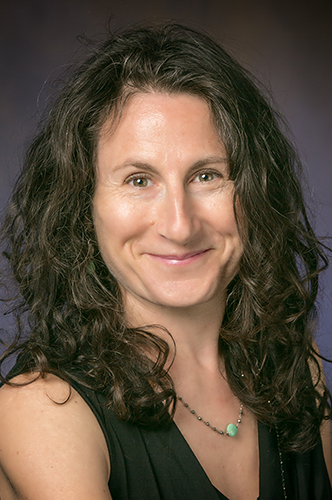

Editor's note: The following is a column written by Brett Ashley Kaplan for the Feb. 3, 2022, News-Gazette, reprinted with permission from the News-Gazette and edited for style. Kaplan is director of graduate studies, director of the Initiative in Holocaust, Genocide and Memory Studies in the Program in Jewish Culture & Society, and a professor of comparative literature at the University of Illinois.
I’m a professor at the University of Illinois and director of the Initiative in Holocaust, Genocide and Memory Studies who has taught both Toni Morrison’s brilliant novel “Beloved” and Art Spiegelman’s “Maus” multiple times.
It is no accident that both of these superb books are banned or under threat of banning at this fraught historical moment where we witness an aggressive, terrifying, and unwelcome rise in white supremacy. “Beloved” and “Maus” threaten the right because they are both complex narratives that invite readers who have not themselves been slaves or survived the Holocaust to glimpse these traumatic histories and experiences.
Neither book flattens or sugarcoats its realities. Both have gone a long way in provoking empathy.
And this will not do for those who wish to push a white-supremacist agenda. Empathy, radical care for an other, being invited to see inside an other’s story are very scary emotions for racists and antisemites, because that very empathy blocks hatred.
Why do I choose to teach both of these books? Because it is through carefully crafted art that we can begin to see others. And when we do that, we are less likely to cause harm, more likely to care.
When I last taught “Beloved,” the students learned so much: Margaret Garner, the historical model for Morrison’s main character, faced a truly terrible choice in 1856. She faced what Holocaust survivors have come to call a choiceless choice. Rather than allow her daughter to be returned to slavery, she took her life. It’s an unimaginably painful choice for a mother to make.
There is no stronger way to grasp the horror of slavery than to understand that Margaret Garner made this choiceless choice. My students learn this. They also learn something about writing from the person I consider to be the best American writer of the 20th century.
Reading “Beloved,” my students tell me, changed their lives. Some of my students are the descendants of slaves, others are not. But they were able to see how haunting works, to understand that this legacy is still very much alive for the characters, is still very much alive for us, no matter what our identities.
This is why the brilliant “1619 Project” also felt threatening, and why critical race theory scares. I plan to teach “The 1619 Project” and critical race theory because these, too, teach empathy.
There is no question that “Maus” is a watershed moment for many of my students. Art Spiegelman wrote “Maus” from his own memories of his family’s story of trauma, resilience, survival, and death. It’s not a simple narrative.
Rendered in graphic-novel form that many undergraduates immediately gravitate toward, it conveys all the complexity of inheriting traumatic memories, all the love for a troubled father, all the ways in which Holocaust survivors both demonstrate their capacity to move beyond the worst and, at the same time and in tension with this, carry like burning coals memories that are so beyond what those of us who sleep in comfortable beds, can expect to eat food every day and have never been hunted as though we were animals can ever understand.
“Maus” has proven to be a beautiful, difficult portal into Holocaust history that has transformed the understanding of this awful past for so many students, in so many places. “Maus” has also transformed the graphic novel and opened pathways for many other voices to gain a wider audience and be seen, heard, and cared for.
In response to the McMinn (Tenn.) County school board’s decision to ban “Maus,” I am adding “Maus” to my fall syllabus. This banning is censorship that smacks of the exact same modes of thought control that enabled the Nazi genocide.
The banning of “Maus” and threats against “Beloved” must be reversed so that democracy can thrive. I believe that the members of the McMinn County school board are resilient enough to recognize that they have made a mistake.


